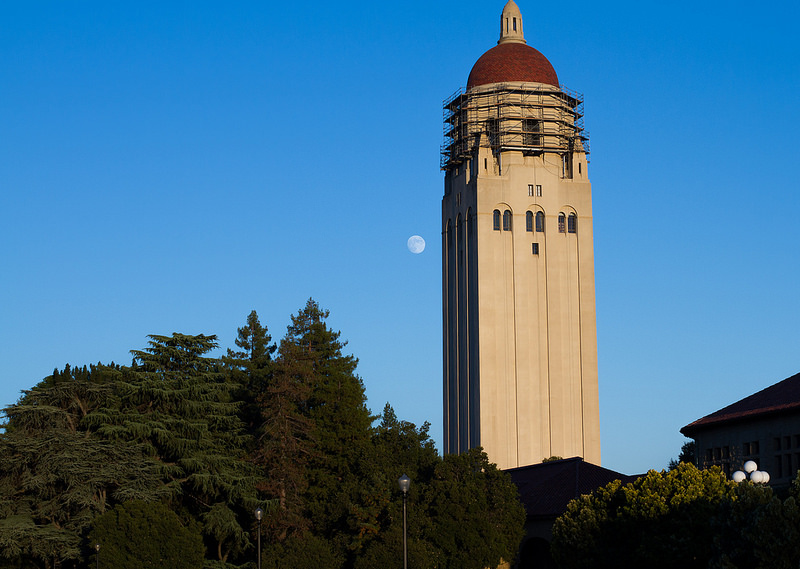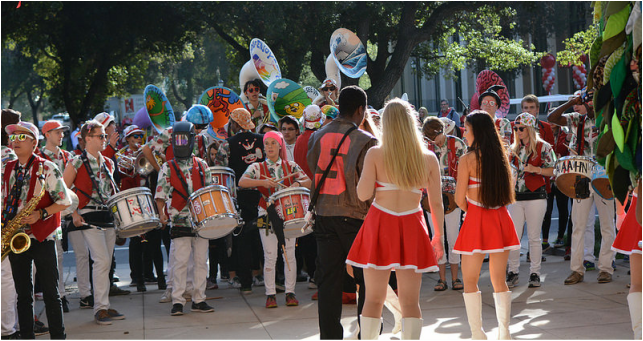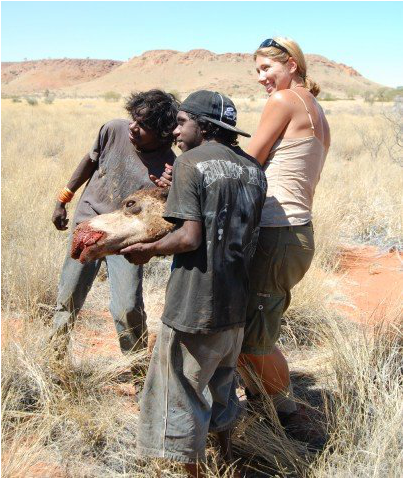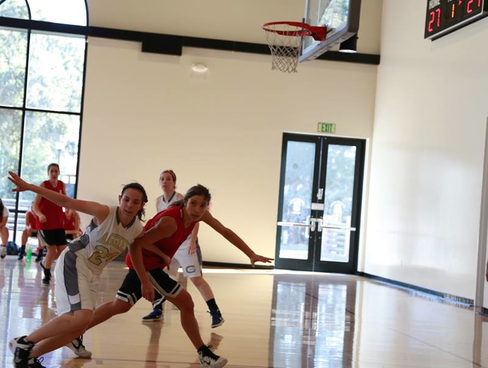|
Stanford is a dream school. With its huge endowment, symbiotic relationship to the Silicon Valley, and endless opportunities (you'll be taking introductory-level classes with bestselling authors and former world leaders), it's no wonder the 2016-2017 application season yielded record-low acceptance rates. 2017-2018 will probably only be more competitive. Which is why it's more important than ever that your Common App and supplemental essays are authentic and unforgettable. I've already published How to Write Your Stanford Short Answer and Supplemental Essays, 2017-2018, but I wanted to post some advice specifically about authenticity -- after all, Stanford admissions officers are experts at detecting authenticity. The first thing you need to do is forget everything you ever learned about writing academic papers. Your Stanford application is not a scholarly essay. It is a personal one. But don’t forget what you’ve learned about creative writing. That still matters. ESPECIALLY if you’re indicating an interest in writing or English. Don’t say you’re a good writer, and then write a boring essay. That suggests that you're either lazy, or you have an inflated sense of your accomplishments. But even if you’re a techie, STEM-y, or engineer, it’s still important to write essays that make admissions officers feel like they know you — and want to know you more. Like, they should literally be saying, "That's SO funny! I wish I could ask him more about that!" As I wrote in How to Write Your Stanford Short-Answer Essays and Optimize Your Application, don’t write paragraph-version resumes: Use the space to talk about why you do this activity; how it has changed you; what about it you found the most meaningful. OR. Tell them what this activity says about your personality, goals or values. OR. Think of something you want them to know about you that they don't know already. Come up with at least three good ideas before choosing one. Read more > As you write, think about quality, not quantity. For example: 2. Name your favorite books, authors, films, and/or artists. (50 word limit) 80% of applicants are going to do the totally boring thing and put a list of books, authors, films and artists they like. Be a part of the other 20%. Instead of cramming in as many works as possible, focus on 1-3 that have especially affected you -- and then tell them why. And, again -- think about what makes you a unique candidate, and try to pick books, authors, etc. that show that quality/trait about you. Read more > For example, instead of some list of cliche books you only read because they were assigned in AP Lit, I’d write something like: Encyclopedia of Recreational Diving. Despite growing up on a sheep farm in the landlocked state of Iowa, I became obsessed with scuba diving. After two summers at ActionQuest, I completed my Rescue Diver, Underwater Navigator, Underwater Naturalist and Search and Recovery training. This fall, I read the entire encyclopedia, cover-to-cover. Read more > Instead of a forgettable list of books, this essay tells them personal things about me. I’m a farm girl. I love scuba diving. I read encyclopedias for fun. Or, perhaps, since I enjoyed theater in high school, I might go with: Sondheim. First, he writes the best alliterations. My personal favorite: "We've no time to sit and dither / While her withers wither with her." Second, he taught me that lyrics aren’t just words. Context and delivery transformed, "I've just met a girl named Maria,” into one of the most beautiful lines on Broadway. Read more > Again, it helps readers glimpse into my mind, instead of just telling them which musicals I like. It shows that I enjoy silly (yet extremely clever) word plays, and that I’ve engaged thoughtfully with the music I enjoy listening to and performing. After reading thousands of 50-word lists of books and authors, these are essays I’m much more likely to remember. Apply this same logic to all your short essays. Or read my full post about the Stanford short essays. Or check out my rates and services page and contact me to set up an appointment. My Stanford journey took me... camel hunting. While living semi-nomadically in the Great Sandy Desert, doing participant-observation anthropology research with Professor Doug Bird. You also want to keep in mind that Going To Stanford Doesn't Mean You'll Get a Stanford Education. Readers are looking for you to prove and demonstrate that you will take advantage of the incredible opportunities available at a school with a multibillion dollar endowment. As I wrote in the post: You need to have amazing recommendations. Not good ones. Not okay ones. Because what does it mean that you've managed to take countless AP and honors classes; you've gotten more A's than you know what to do with… But, somehow, you never got to know any of your teachers. It suggests that you don't care about getting to know your teachers. You don't care about digging any deeper into any of the topics you learned about in class. You just want the grade. The advantage of going to Stanford isn't that you have amazing opportunities to take classes. Every university has classes. Every community college has classes. Even the internet has classes. If classes is what you want, you don't even have to get out of bed for that… Read more > Your essays need to show the same thing. You’re not a box checker. You seek opportunities - -and create opportunities when the ones you want don’t exist. Part of this is showing that you do what you do for a reason. “Purpose,” which many students with a high GPA lack, is all the rage these days. Which is why I wrote, in Here's What Colleges REALLY Think About Volunteer Work, Many students focus their energy on "what" they're doing -- community service, AP classes, varsity sports, etc. But one of the most important questions admissions officers have about you isn't "what" -- it's why? Why are you doing what you're doing? Why is that an enriching experience? How will it help you accomplish your goals? So let's apply this to community service. What: You volunteer to pick up trash at a park every month. Why: ??? What: You volunteer as a receptionist at a local hospital every week. Why: ??? If you don't have a good "why," schools won't be hugely impressed by your service. They're looking for people who find and develop passions. They're looking for people who want to change the world. If your application is full of whats and void of whys... that tells them you're not looking to change the world. You're looking to get into college. Read more > This is why many bloggers and college counselors say that you should “never write about a service trip abroad.” I strongly disagree with them, though. Instead, I tell my students: Never, ever write an essay about how such-and-such a volunteer experience "changed your life" if it didn't actually change your life. Don't say your summer spent building schools in El Salvador changed your life... if you went back to school and kept doing the same things you were already doing. If it truly changed your life -- show that it changed your life. Take a Spanish for Medical Professionals course online or at a local community college. Volunteer for a labor or immigration issues groups. Join a grassroots effort to legalize drugs in your state, if you think that will make a difference to the orphans you worked with! (That could actually be a super edgy and memorable college essay -- something to the effect of, "If I learned anything from working with orphans in El Salvador... it's that we need to legalize drugs in the United States." See also: If You're a Vegetarian Who Uses Illegal Drugs, You are THE HUGEST Hypocrite.) Though I would suggest avoiding the SUPER cliche, "I thought I was helping them, but really, they were helping me." And also the "they had nothing, but they were so happy" cliche. Kids who live in poverty are not happier than kids whose families have money -- you only think that because the kids you interacted with on your trip weren't dying of malaria. But who knows how many of their siblings and friends are? Finally, I recommend checking out the advice and sample essays I shared in How to Write Successful Stanford Supplementals. I’ve gotten lots of emails about how useful this advice was for students — not just in terms of applying successfully to Stanford, but also in terms of changing how they think about solving problems. Which is an even cooler compliment that hearing a former NBA player with two championship rings tell me, “Eva, you are a white, female Dennis Rodman.” (He meant defensively, not personally. Though I’ve totally been crushing it on offense, lately.) I hope you found this advice useful. If you have additional questions or would like to set up an appointment with me, check out my Services Page and then Contact Me. Good luck!
2 Comments
5/20/2023 09:08:25 am
I wanted to express my gratitude for your insightful and engaging article. Your writing is clear and easy to follow, and I appreciated the way you presented your ideas in a thoughtful and organized manner. Your analysis was both thought-provoking and well-researched, and I enjoyed the real-life examples you used to illustrate your points. Your article has provided me with a fresh perspective on the subject matter and has inspired me to think more deeply about this topic.
Reply
Leave a Reply. |
AuthorEva Glasrud completed her B.A. and M.A. at Stanford. She is now a college counselor and life coach for gifted youth. Archives
October 2022
Categories
All
|




 RSS Feed
RSS Feed